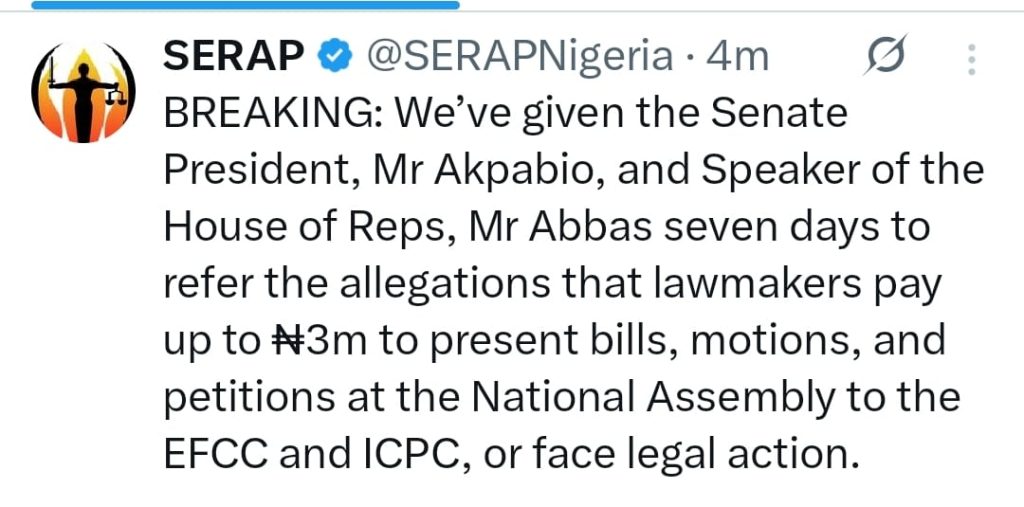The Socio-Economic Rights and Accountability Project (SERAP) has issued a seven-day ultimatum to the Senate President, Godswill Akpabio, and Speaker of the House of Representatives, Tajudeen Abbas, to refer allegations of bribery at the National Assembly to anti-graft agencies.
In a statement posted on its verified X handle on Sunday, SERAP demanded that the allegations that lawmakers pay between ₦1 million and ₦3 million to present bills, motions, and petitions be immediately referred to the Economic and Financial Crimes Commission (EFCC) and the Independent Corrupt Practices and Other Related Offences Commission (ICPC).
The organization also urged the presiding officers to publicly name those implicated, recover any illicit proceeds of bribery, and ensure the protection of whistleblower Ibrahim Auyo, a member of the House of Representatives (APC, Jigawa), who first made the revelations.
Auyo had alleged in a viral video, recorded in Hausa, that the process of presenting motions, bills, and petitions at the National Assembly has become financially prohibitive.
“Since I was elected as a member in 2015, no individual has given me a bill to pass. And also, even the bills and petitions are paid for,” he said.
“You have to pay from ₦3 million, ₦2 million, or ₦1 million to present it. And after you present the bill, you must follow up by lobbying the whole 360 members of the House to accept the bill,” he added, suggesting that similar practices may exist in the Senate.
In its open letter, SERAP described the allegations as a serious breach of public trust and a mockery of legislative powers guaranteed under Section 4 of the 1999 Constitution (as amended).
“The allegations that lawmakers pay bribes to present motions, bills and proposals at the National Assembly are a grave violation of the public trust and constitutional oath of office by lawmakers,” SERAP stated.
“Lawmakers should not have to pay bribes to present motions and bills. Bribery should never have any influence in the exercise of legislative duties or running of the National Assembly. These allegations of quid pro quo for lawmaking have seriously undermined Nigerians’ democratic rights.”
The rights group warned that failure to comply with its demands within seven days would leave it with no choice but to pursue legal action to compel compliance.

Credit: @SERAPNigeria via X.








Leave a Reply